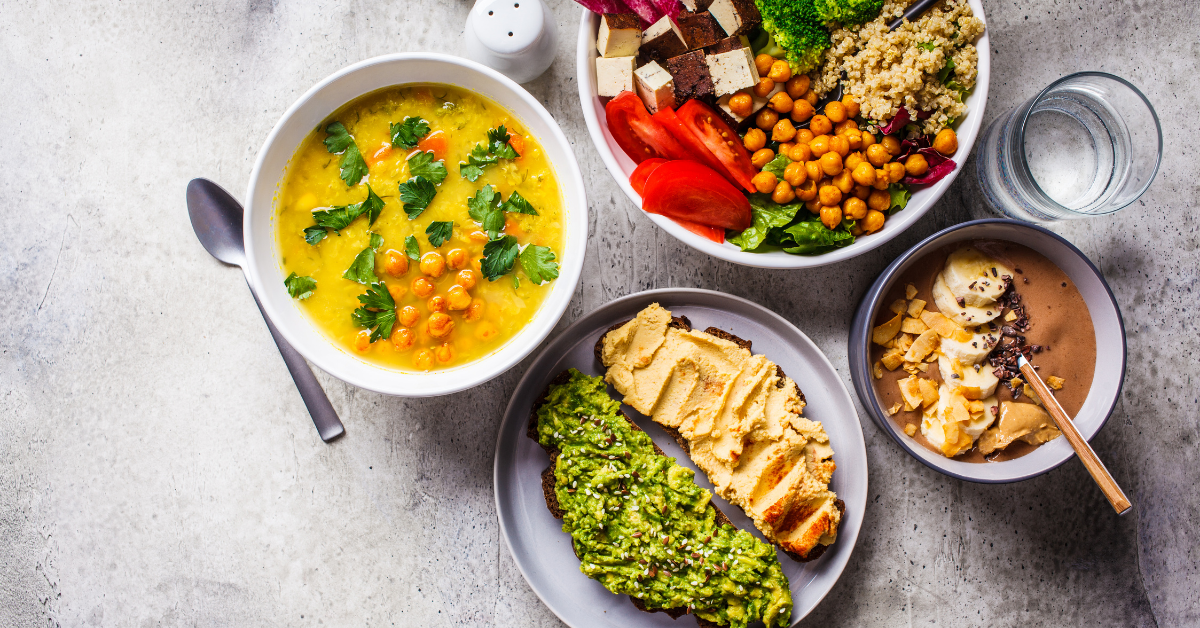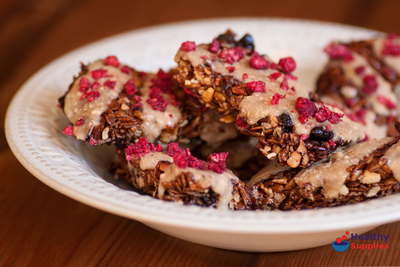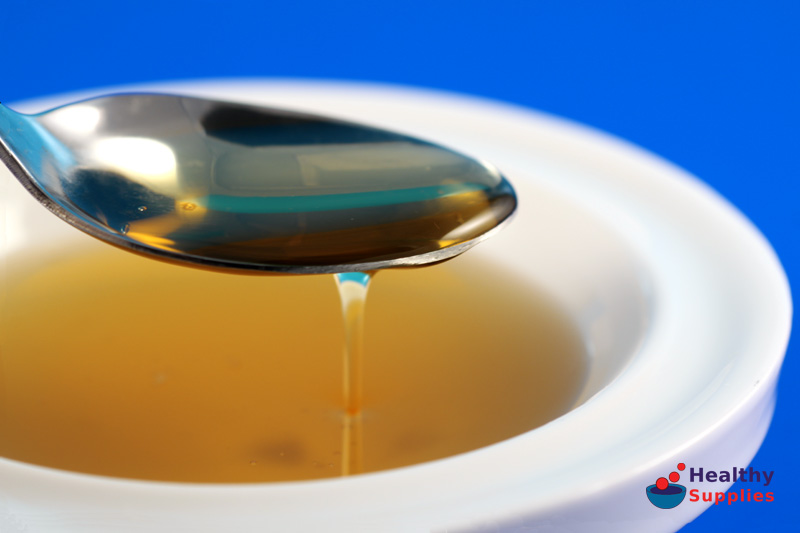How Can I Improve My Diet?
Britain has terrible eating habits. Compared to our European neighbours, we have the highest prevalence of adult obesity, the highest availability ultra-processed food, and the lowest availability of minimally or unprocessed food.[1] Someone dies of heart or circulatory disease every 3 minutes in the UK, and the majority of these deaths are diet-related, with only a third of us eating enough fruit & veg, two-thirds being overweight, and nearly a third of children having a body mass index defined as ‘obese’.[2]
It’s clear we have let big corporations dictate what we eat, rather than science. What ends up on the nation’s plates is largely the result of what will make the highest profit at the same time as hooking customers into repeat purchases by exploiting the hugely addictive power of calorie-dense, nutrient-light products. Over half of what we eat in the UK – 50.7% according to the journal Public Health Nutrition is now ultra-processed junk.

There’s a truckload of information online about what constitutes a ‘balanced diet’, and many battles are waged on internet forums on this subject by those with divergent opinions. Are meat and fish bad for you? What about dairy? The NHS recommends we eat 5 portions of fruit and veg a day, base meals on high-fibre starchy foods, have some protein and some dairy or dairy alternatives, choose unsaturated fats and drink plenty of fluids.[2] Bestselling writer on food and diet Michael Pollan offers more concise advice: “Eat food. Not too much. Mostly plants.”[3] He also urges us not to eat anything our great grandmothers wouldn’t recognize as food.[4] The nutritionist Jeff Novick’s advice is for us to ‘cut the calorie-rich and processed foods’. He advocates eating a low-fat, high fibre, minimally processed, starch-based diet with fruits and vegetables.[5]
Your body needs cholesterol, a fatty substance essential for several important biological functions. However, our bodies make all we need, and we don’t need to consume any in our diet. Excess cholesterol is the main factor in the majority of deaths from heart disease in the UK, as it builds up inside our blood vessels and eventually leads to blockages, which cause heart attacks and strokes. The main food sources of cholesterol are saturated fats and trans fats. Both are found in red meat and dairy. Trans fats are also produced artificially by hydrogenating vegetable oil to make it solid at room temperature. These fats are catastrophic, potent destroyers of health.[6] Choosing to avoid them is an excellent first step if you’re serious about decreasing your chances of serious disease. Government guidelines only advise us to reduce our consumption – but in reality, the only safe level of these sorts of fats is zero, and stopping eating and serving them is perhaps the most important practical thing you can do to improve your health and that of your family.[7] However, human nature means we find it near impossible to make sudden, rigid, lasting changes. Many people say, right, I’m going to eat healthily, stop smoking and give up caffeine! Then it all falls apart on day two. So we should at least reduce our consumption of bad fats, while bearing in mind our good plans are likelier to fail if we take too much on!
One of the most important things to consider when snacking: are you actually hungry, or are you just snacking out of habit, or because food is there? Before you reach for your elevenses, bear in mind that people with unhealthier foods visible in their kitchen tend to have a far higher Body Mass Index.[8] So ‘out of sight, out of mind’ is the best watchword! If you really are hungry, though, you can’t snack better than when you choose plant-based whole foods, such as Nuts. There is increasing evidence that eating a handful of nuts every day has a very beneficial effect on cholesterol levels, blood sugar regulation, feelings of fullness and even weight loss, even though they’re calorie-dense.[9] Some of us, in a world of endless aisles of biscuits and chocolate, seem to have forgotten how utterly delicious beneficial whole foods like Roasted Cashew Nuts really are. Just try not to choose the salted ones or eat more than a handful! We have a super collection of recipes for wonderful, healthful snacks, which you can find here.
What time we eat is extremely important. Eating causes blood sugar to increase, and large blood sugar spikes can lead to the release of free radicals, harmful molecules which cause oxidative stress, damaging the body’s cells and leading to a range of diseases and symptoms of ageing, such as wrinkles. When we ‘graze’ on food throughout the day, our blood sugar can be in a constant state of elevation, so we should stick to regular meal times, with as little as possible in between. Eating late at night is a bad idea too – in a 2013 study, two groups of men ate the same amount of calories daily, but one group made sure not to eat between 7pm and 6am, and found they lost about a pound each week in comparison to the other group.[10] ‘Time-restricted feeding’ has many benefits – it’s believed it presses an evolutionary button which tells our bodies to switch to ‘defence and repair’ mode. In 2018, obese adults took part in a trial where they restricted their food intake to an 8-hour window daily, and after 12 weeks had lost an average of 7 pounds and reduced many risk factors for disease compared to a control group consuming the same calories but with no time restriction.[11] Multiple studies have proved the same amount of calories eaten for dinner is significantly more fattening than if they’re eaten for breakfast.[12] It would seem the old saying rings true: “Breakfast like a king; lunch like a prince; dinner like a pauper”.
Why should I eat healthy food?
It depends – do you want to live a longer, more productive, happier, more disease-free life? The World Health Organisation says a healthy diet is essential for good health and nutrition, as it protects us against many chronic diseases such as heart disease, diabetes and cancer.[13] It’s important to bear in mind that humans evolved over many hundreds of thousands of years eating a predominantly plant-based whole food diet, and this, indeed is what remains best for us. Evolution hasn’t yet caught up with the double bacon cheeseburger, and almost definitely won’t within the next few thousand years!
Why is fat important in a diet?
Fat is a crucial part of our diet, and we couldn’t actually stay alive without consuming at least some of it. Essential vitamins like A and D are fat-soluble, meaning we can’t absorb them without fat. The type of fat we choose is very important though; we should avoid saturated and trans fats, as they can clog our arteries, which leads to heart disease. If you fry food, try to choose an oil with a higher smoking point, as the more heat an oil can take, the less likely it is to break down into carcinogenic compounds.[14] Oils with monounsaturated fats are better for us. For instance, Olive Oil is 73% monounsaturated fat, and is pivotal to the reduction in heart disease, stroke, diabetes and Alzheimer’s disease experienced by those who eat the Mediterranean diet.[15]
[1] https://www.cambridge.org/core/journals/public-health-nutrition/article/household-availability-of-ultraprocessed-foods-and-obesity-in-nineteen-european-countries/D63EF7095E8EFE72BD825AFC2F331149
[2] https://www.bhf.org.uk/-/media/files/research/heart-statistics/bhf-cvd-statistics-uk-factsheet.pdf
[3] https://www.welcometothetable.coop/food-lifestyle/michael-pollan-three-simple-rules-for-eating
[4] https://michaelpollan.com/reviews/how-to-eat/
[5] https://www.drmcdougall.com/misc/2009nl/jan/novick.htm
[6] https://www.ncbi.nlm.nih.gov/pmc/articles/PMC1523500/
[7]https://pubmed.ncbi.nlm.nih.gov/21521229/
[8]https://pubmed.ncbi.nlm.nih.gov/26481966/
[9]https://pubmed.ncbi.nlm.nih.gov/18042516/
[10]https://pubmed.ncbi.nlm.nih.gov/23702187/
[11]https://pubmed.ncbi.nlm.nih.gov/29951594/
[12]https://pubmed.ncbi.nlm.nih.gov/28257081/
[13]https://www.who.int/initiatives/behealthy/healthy-diet
[14]https://en.wikipedia.org/wiki/Template:Smoke_point_of_cooking_oils
[15]https://www.ncbi.nlm.nih.gov/pmc/articles/PMC2533524/








